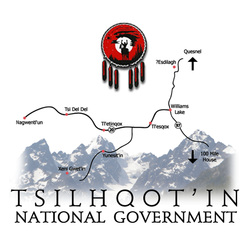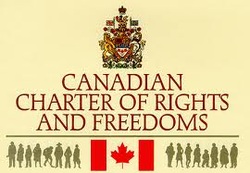
Exactly what 'aboriginal title' means has been a subject of controversy for decades. This decision will have enormous impact in B.C., where almost all of the land in the Province belongs to First Nations people, having never been ceded or treatied. In turn, that gives First Nations enormous power with resepct to resource development - including the Enbridge pipeline.
"For centuries the Tsilhqot’in Nation, a semi-nomadic grouping of six bands sharing common culture and history, have lived in a remote valley bounded by rivers and mountains in central British Columbia. It is one of hundreds of indigenous groups in B.C. with unresolved land claims. In 1983, B.C. granted a commercial logging licence on land considered by the Tsilhqot’in to be part of their traditional territory. The band objected and sought a declaration prohibiting commercial logging on the land. Talks with the province reached an impasse and the original land claim was amended to include a claim for Aboriginal title to the land at issue on behalf of all Tsilhqot’in people. The federal and provincial governments opposed the title claim." (from the judgement)
Some of the issues which this case settled:
1. A First Nation has title even if they were a nomadic nation and did not have defined settlements, as long as they regularly used the territory.
2. The proper way for the constitutionally-protected rights of aboriginal people to be reconciled with the rights of other Canadians is outlined. First Nations title gives that First Nation the exclusive right to decide how the land is to be sued and the right to benefit from those uses.
3. The Crown can negotiate with First Nations and get their consent.
4. If the Crown does not have consent, it may in some circumstances still go onto First Nations territory: but it must
a. Comply with its procedural duties
b. Justify any incursion into Aboriginal title lands by showing that there is a "pressing and substantial" government objective AND that the government is acting in a way that is consistent with its fiduciary duty to the Aboriginal title-holder.
The government must respect the Aboriginal title in both present and for future generations; and it must show that it is making the smallest possible incursion into the territory to achieve its goal (minimal impairment); and the benefits the government gets must not be outweighed by disadvantage to the First Nation.
5. If aboriginal title has not been established in an area of the province, then provincial laws of general application apply. So the government can issue licences under the Forestry Act, for example. But once aboriginal title is established the land no longer falls under the Forest Act as "crown land".
6. If the province wants to issue forestry licences on land belonging to First Nations, it must either get their consent, or be able to demonstrate that the licences are necessary to accomplish a "pressing and substantial" objective AND be able to show that the benefit to government is not outweighed by the detriment to the First Nation.
It will be in the context of pipelines in BC that this decision will have an enormous impact.
This case marks the beginning of a new relationship between settlers and First Nations people. Settlers must stand in alliance with First Nations people as the implications of this decision are worked out everywhere in BC and Canada.


 RSS Feed
RSS Feed
